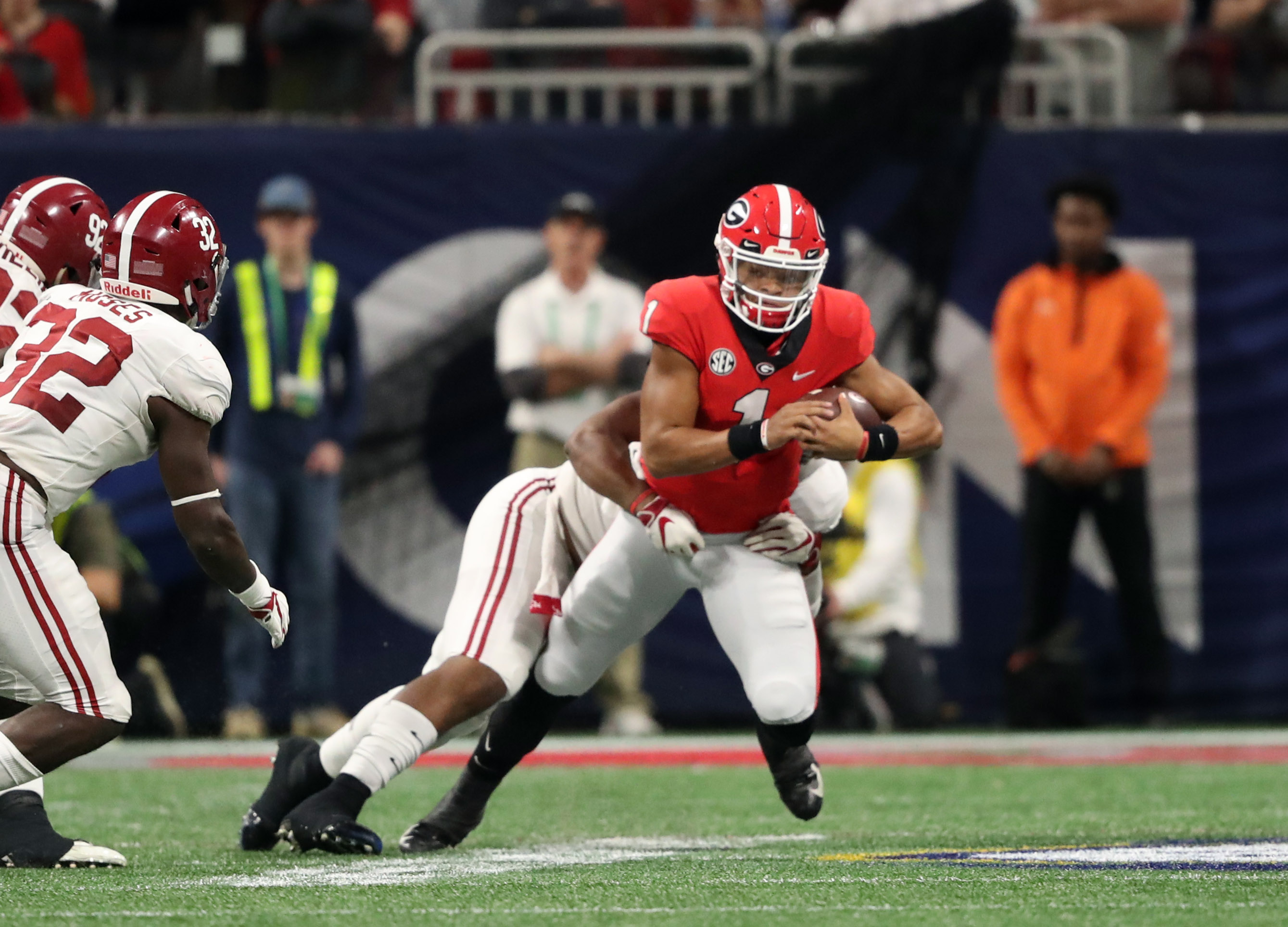
Moving beyond the blame game, Justin Fields and Kirby Smart right to move on from each other
By Corey Long
Published:
Sometimes it just doesn’t work out.
Now that Georgia quarterback Justin Fields has entered his name in the NCAA transfer portal, there will be a lot of people, inside and outside of the media, looking to place blame for why this “can’t-miss” 5-star prospect missed dramatically in his first season with the Bulldogs.
For better or worse, Fields’ first year at Georgia was a waste of time.
From a statistical standpoint, he performed well when he got into games, but the sample size was far too small. And even though Fields received snaps in every game, it rarely seemed like a plan and usually more like an attempt to appease him or Georgia fans who wanted to see him.
It’s easy to understand why Georgia coach Kirby Smart made the in-game decisions he made. Jake Fromm was very good in his second year. He was more accurate, he had fewer turnovers, he averaged more yards per completion and took fewer sacks. Fromm was always going to be tough to beat out. He is a perfect fit for what Georgia wants to do on offense and he’s proven his value as Georgia’s starting quarterback.
But Smart didn’t recruit Fields to waste his time or because he didn’t trust that Fromm would improve.
He recruited Fields because that’s what he is supposed to do.
Fields was the top quarterback in the nation and the top prospect in Georgia. Smart is the head coach of the spotlight program in Georgia. It’s his job to make sure the top in-state prospects become Bulldogs.
Cam Newton was a top quarterback prospect from Georgia who went elsewhere and won a national championship and a Heisman. Deshaun Watson starred less than an hour from Athens and he went to Clemson, where he won a national championship and should have won two Heismans.
Smart wasn’t going to allow himself to get burned like Mark Richt did.
He’s not the first coach to do this. In 2007 Urban Meyer recruited 5-star quarterback John Brantley to Florida. Brantley was a horrible fit for Meyer’s offense. He didn’t like to run and he didn’t like to get hit. But he was a top prospect and played high school football a half hour from Gainesville and he was a legacy commit (his father, John III, played at Florida). Meyer took pride in getting the top prospects in the state to Florida and he wasn’t about to see the top quarterback in the state go to Texas (Brantley’s original commitment). Brantley decided to stick it out at Florida and started his final two years, but he generally struggled on the field.
Fields’ skill set, his dynamic ability as a dual-threat quarterback, doesn’t fit with what Georgia does right now. Georgia is a pro-style team suited for a quarterback with a more traditional style who can manage the game as much as he makes plays.
Fields needs to be in an offense where he can move around and play with tempo and pace. He wants to find an opportunity to be something other than an occasional “change-of-pace,” or heaven forbid, a decoy on special teams. Fields, unlike Brantley, wasn’t going to risk his time in college trying to be a square peg in a round hole. And he has every right to make that decision.
At the end of the day, there doesn’t need to be blame placed anywhere.
Smart did his job as a recruiter and Fields took a chance knowing that he was going to have to beat out a talented incumbent to earn more snaps and force Georgia to change what Smart is comfortable doing on offense.
Now they can both move on. Fields to find a situation where he can thrive and Smart with the knowledge that no matter how highly-rated or talented the player is, sometimes it doesn’t work.
Corey Long is a freelance writer for SaturdayDownSouth.com. Follow Corey on Twitter @CoreyLong.







